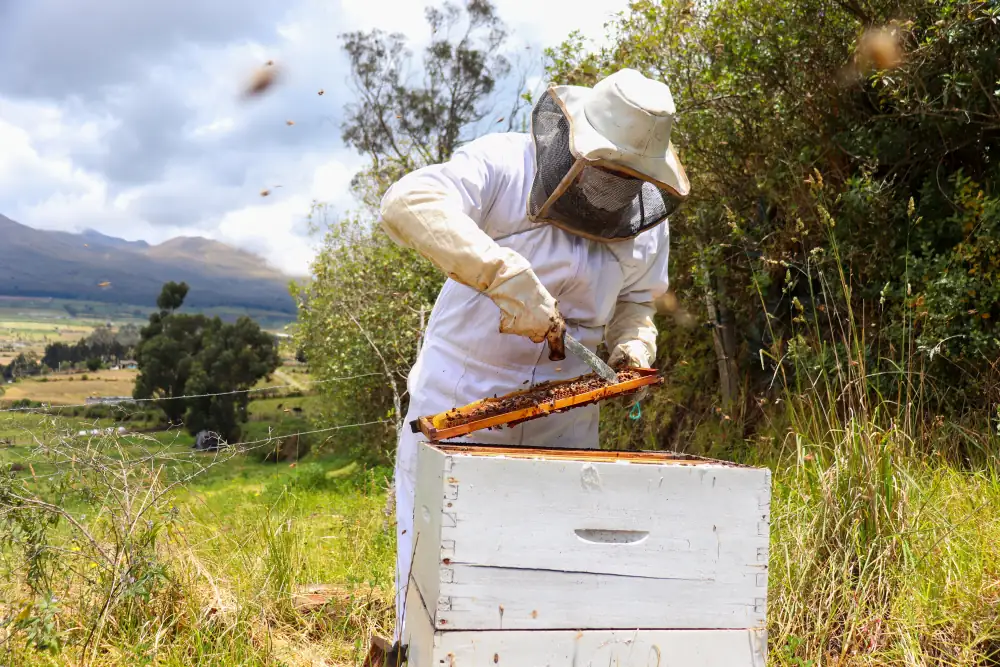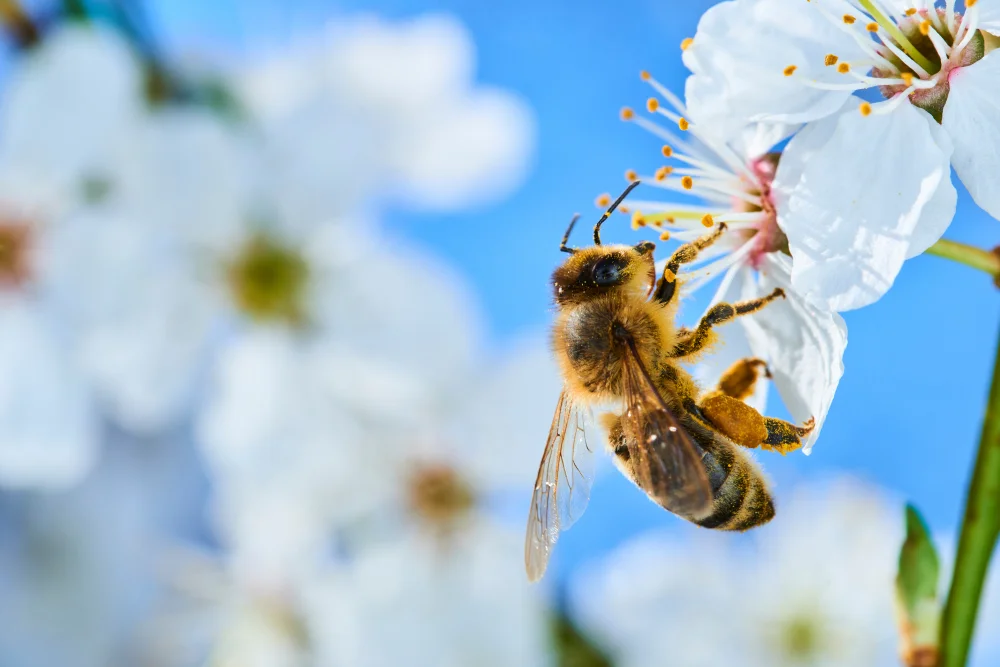
A team of scientists including NRI researchers has developed an engineered bee feed supplement that could help tackle the alarming decline in honeybee populations worldwide. The study, published in Nature on 20 August, reveals that a precision-engineered yeast supplement, designed to provide essential compounds found in plant pollen, significantly improves honeybee colony reproduction.
Led by the University of Oxford, the research also involved key contributions from the Royal Botanic Gardens Kew and the Technical University of Denmark. NRI’s expertise was central to the project, providing the chemical analysis that identified which sterols are essential for bee health.
Identifying the missing nutrients
Honeybees depend on a diverse diet of pollen to supply sterols – specialised lipids critical for growth and reproduction. However, climate change and agricultural intensification are reducing floral diversity, forcing beekeepers to rely on commercial pollen substitutes. These, however, lack the right sterol compounds, leaving bee diets nutritionally incomplete.
Through delicate work including dissecting individual nurse bees to separate the guts, and advanced chemical analysis, the team identified six sterols, 24-methylenecholesterol, campesterol, isofucosterol, β-sitosterol, cholesterol, and desmosterol, that dominate in bee tissues. Before this work, it was unclear which of the diverse sterols in pollen were critical for bee health. ‘Our analysis identified exactly which sterols bees use, giving us a precise nutritional target for the modified yeast,’ said Phil Stevenson, Professor of Plant Chemistry at NRI and co-author of the study.
Engineering a solution
Researchers used CRISPR-Cas9 gene editing to engineer the yeast Yarrowia lipolytica to produce the exact mixture of these sterols sustainably. Y. lipolytica was selected since this yeast has a high lipid content, has been demonstrated as food-safe, and is already used to supplement aquaculture feeds. The yeast biomass was then cultivated, harvested, and dried into a powder that could be mixed into artificial pollen diets.

In controlled three-month feeding trials, colonies given the sterol-enriched supplement reared up to 15 times more larvae to the viable pupal stage than colonies on sterol-deficient diets. These enriched colonies also sustained brood rearing for longer, and the sterol profile of their larvae matched that of naturally foraged bees.
Benefits for bees, biodiversity, and agriculture
Pollinators like honeybees contribute to the production of over 70% of leading global crops and declines in bee populations threaten food security and biodiversity alike. ‘Honeybees are critically important pollinators for the production of crops such as almonds, apples, and cherries and so are present in some crop locations in very large numbers, which can put pressure on limited wildflowers. Our engineered supplement could therefore benefit wild bee species by reducing competition for limited pollen supplies,’ Professor Stevenson explained.
The yeast-based supplement could be commercially available within two years, offering beekeepers a sustainable way to improve colony resilience without depleting natural pollen sources. Beyond honeybees, the same technology could be adapted to support other pollinators and even farmed insects, opening new avenues for sustainable agriculture.
Looking ahead
While the results are promising, large-scale field trials will be essential to confirm long-term benefits and pollination outcomes in real-world agricultural settings. The researchers are optimistic about scaling the approach and integrating it into bee management strategies.
Professor Stevenson said, ‘Research to prevent the sudden loss of bee colonies has focused primarily on pesticides and parasites like Varroa mites. But our work shows that good nutrition is crucial too and just like with people good diets for bees can lead to healthy outcomes and so this research could be the beginning of the end of colony collapse disorder.’
Read the full paper here: https://www.nature.com/articles/s41586-025-09431-y

